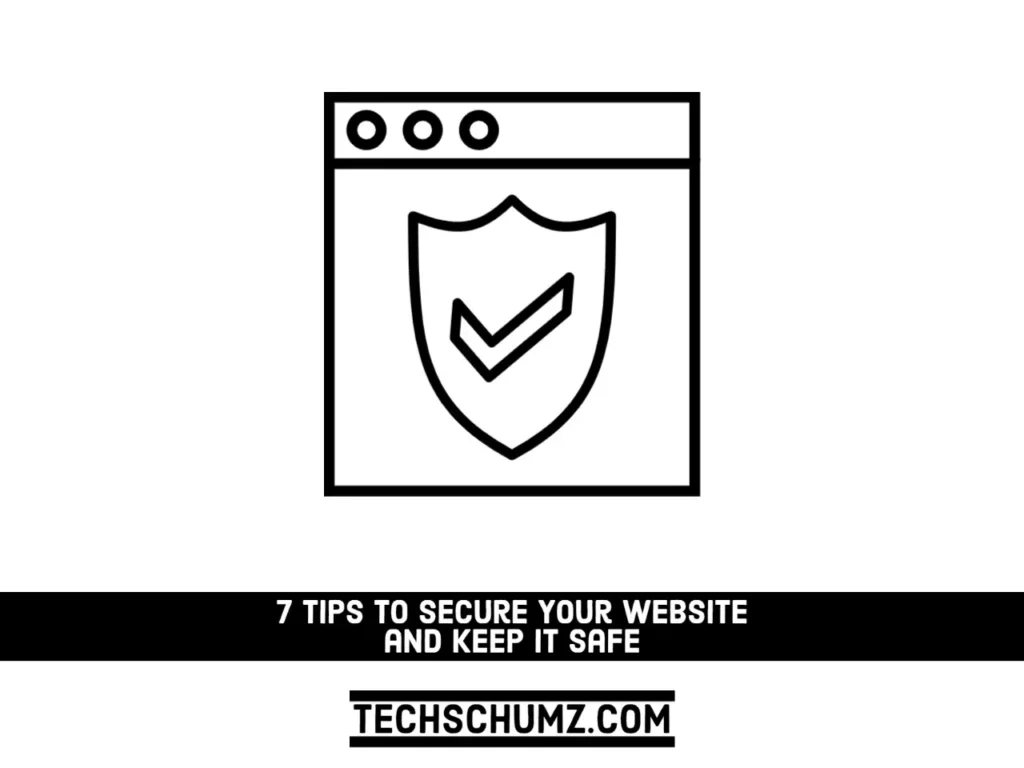If you run a website, you know just how important it is to keep your website secure. Many malicious hackers use various methods to attack or break into websites, so you want to ensure that your site cannot be broken into in this way.
To support you with this, here are seven tips to secure your website and keep it safe from hackers and other malicious users so your site will continue functioning as intended and make your business more money.
Table of Contents
1. Enforce multi-level login security
One of the most important things you can do to secure your website is to implement multi-level login security. There is a lot to talk about regarding a password policy. However, it is easy to get started with two of the best options: setting strong passwords and using two-factor authentication.
- Set strong passwords: Avoid using obvious passwords like “password” or “123456,” as they are easy for hackers to guess and can compromise your entire system. Also, it’s best not to use the same password for numerous websites, making it easy for hackers to access all of them if one is hacked.
- Set up two-factor authentication: If you want to provide more protection for your data, it is best to set up multi-factor authentication login. If a website has it, people who try to log in need to provide an additional code that is typically sent to an application on their phone or hardware keychain. Most website builders are easy to set up with either Google Authenticator or Authy.
2. Install SSL certificate
It is necessary to install an SSL certificate on your site, especially if you operate an SSL certificate. The certificate will help safeguard your customers’ private data regarding payment. Once you install the SSL certificate, the information travels between the server and the browser. SSL keeps data spies away from the information.
You do not require any technical expertise to secure your website with SSL. It is easy to obtain an SSL certificate through a hosting company, reseller, or certificate authority. The prices vary, but you can get an SSL certificate with 24/7 support. If your host does not provide it, you may get an SSL certificate from CheapSSLShop.
3. Keep a regular backup schedule
You can quickly secure your website by setting up a backup schedule. However, a backup has never scared a hacker off, but it is a precautionary measure. It gives you a place to start in a crisis.
- Wix offers weekly automatic back-ups of your website.
- Shopify’s renowned Rewind program is one of the few backup applications.
- Squarespace has a few backup options, from making duplicate websites and exporting them to an XML file.
- WordPress users can use any of the plugins to create secure backups.
If you are a WordPress user, we recommend using UpdraftPlus for website security. With the free version, you can back up to the cloud directly with no limit to the cloud service you use (including Google Drive, Dropbox, Amazon S3, and more). A free plugin, UpdraftPlus, can also help you quickly get your site back online if there is a problem.
4. Use a Secure Website Hosting Service
To have a secure website, you must choose a secure host. We strongly recommend Hostinger as it gives you all the tools to have a secure website. When selecting a web host, look for these three things:
- Select a web host that offers secure sockets layer (SSL) technology. This standard security protocol creates an encrypted link between a web server and a browser.
- Go for a host that uses Linux as its operating system as it is more secure than Windows, making it less of a target for hackers.
- Choose a host that offers regular backups of your website data. You can restore your site to a previous version if your site is hacked.
5. Record User Access and Administrative Privileges
When giving your team workers or employees access to your site, you must record the user’s access and carefully check the administrative privileges. Also, remember that employees may not think about your site’s security when you let them manage it. Instead, their attention is on the task in front of them. If they fail to spot an error, it could create a website security risk.
Before giving them access to your site, make sure they have prior experience working with your CMS and know what to watch out for to guard against the possibility of a security breach. Inform every CMS user about security issues concerning passwords and software upgrades. Also, provide a list of ways they can improve website security.
To monitor who can gain access to your CMS and the settings they have to manage, keep a log and keep it updated regularly. It is a great way to guard against possible security concerns.
6. Watch Out For XSS Attacks
In an XSS attack, a hacker or attacker puts malicious code into your website, which can change its information or even steal user information. XSS is cross-site scripting. They put a little code into a blog comment, and it is all theirs.
Website security is essential, and XSS attacks can be prevented by inserting a CSP (Content Security Policy) header into your website code. JavaScript will be limited on your website, preventing foreign and potentially contaminated scripts from running. You can configure it only to run JavaScript that you or your web developer add to the page.
7. Update Website Platforms and Scripts
It is vital to keep your website platforms and scripts up-to-date to keep your website secure. By updating your website platforms and scripts, you can help patch any security vulnerabilities. Securing the website by regularly changing passwords for all administrative accounts is vital.
By following these tips, you can maintain a secure website that will benefit both the site’s users and you.
Read also:
